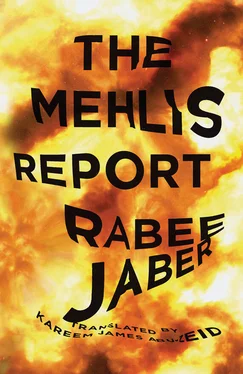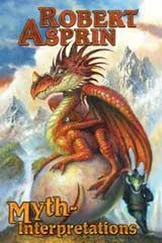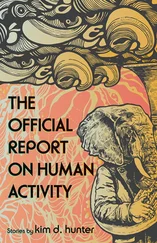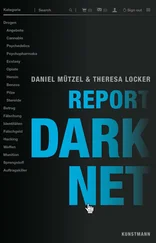The night is long, and I have my fill of worries until the morning. Images from the land of the living pursue me, and I cannot sleep. I get up and turn on the television. I go to the bathroom, then back to the TV. I see my brother in it, up late at our house in Achrafieh. While Beirut sleeps, his eyes are open, looking at the television. Old newspapers are on the desk. The electric light casts its glow into the massive rooms. That high echoing ceiling I know so well. In the corner: the big clock that’s taller than my father. I remember the sound of the clock striking. I haven’t forgotten it. As I look at the television, longing fills my body. I’m here. Not there. I’m not in that house of ours whose every inch I still remember.
I crossed the river and did not cross it. My first night on this side, after I’d spent a long time staring at the black bruise on my cheek and ear, I sat down on the edge of the bed. The bed was soft, with clean blankets, and gave off a scent of lavender.
I know the smell of lavender. Whenever my grandmother took the winter clothes out of the wooden trunk — the one we used to called “grandma’s chest” — whenever she took out her wool skirts, the smell of lavender would fill the air. We had lavender plants beneath the oak tree. Three plants full of bracts, each plant looking like the tail of a peacock, rising under the sunlight, the bees feeding on them. Bees only feed on lavender blooms in the sunlight. Here we see the moon more than the sun. But we see the sun as well.
I remember the smell of lavender. I sat on the edge of the bed for a long time, unable to lay my body down, that familiar body on that unfamiliar wooden bed. The bed was firm but soft, as was the pillow. The bed was clean; the pillowcase pure white. All the covers had been washed. I was tired. Sleep was calling me to its kingdom, but I could not sleep. All that inner agitation, all that dark and disconcerting agitation within me: how could I sleep when there was so much I did not understand?
I sat for a long time on the edge of the bed and looked at things without seeing them. Where exactly was I? Of its own accord, my hand reached out to the book on the dresser. What book was this? I opened it and saw it was a Bible. I recognized it from its small black script, from the thin white paper, from the words that crossed into one another like two lines of ants. And I recognized it from the words written on its very first page: “The Holy Bible.”
I opened it and read: “He that believeth in me, though he were dead, yet shall he live.” I had read those words so often on the door of the church, and the door of my school, and even on the door of our house, but this was this first time in my life that I paid attention to their meaning. Before, I had not known what those words meant. When someone in our city died, we would write them at the top of the death announcements, above the time of the prayer for the person’s soul and the time of the funeral service, then hang the announcements up on walls all around the city. Instead of flowers, we would ask for donations to the church. “He that believeth in me, though he were dead, yet shall he live.” I read the words again and kept reading. I turned the book to another page, then jumped from page to page. I could feel tears in my eyes. Was it because of the light, or because I’d stayed up so late? I should sleep, I thought. I should rest for an hour. I’ll get a headache if I don’t sleep. But how could I sleep with all those things surging in my chest, swelling in my head?
I opened one of the dresser drawers and found more books. I picked up one that was bound in white, not black. A thick book like the others, but its cover wasn’t black — it was made of stiff white cardboard. I opened it and saw it was in English: The Iliad . I remembered that book from university. It was part of the curriculum for the “Civilizations” course, but I hadn’t read it. A blind Greek man called Homer had written it. I didn’t read it back then. He wrote it in Greek, not English, many centuries ago. Here — in the sleepless years — I read The Iliad in no time at all. I read it several times.
A wave of insomnia and longing has come over me, so I get up and head for the television. I see Saman, my brother, walking through the streets of Beirut. The streetlamps light up the city. People are moving on the sidewalks. The cafés on Sassine Square have begun to empty out. The people are going home early these days. They’re afraid of new explosions as the Mehlis Report approaches. I look at their faces. I observe their gestures as they say good-night to one another and get into their own cars. Car bombs have terrified the people of the city. Anyone could die just crossing the road, or getting out of a car, or getting into one. Death could come at any hour. The people are afraid. They feel a terrible fear in the days after an explosion. But as the explosion recedes, with each passing day, with each passing night of sleep, as it fades into the background, as time pushes it further and further into the past, the blast will fade, and people will no longer think of it all that much, and the fear will gradually fall from their hearts — as if the explosion hadn’t happened here, in this city. As if it had happened somewhere else.
Their faces are flushed from all the food and drink, all the dancing and laughter. A woman embraces a man at the edge of the sidewalk in front of Starbucks. The moon is in the sky, but the dazzling streetlights prevent the people of Beirut from seeing it. The sky is teeming with stars tonight, but the stars are unseen. They’ve vanished in a blanket of smog and humidity. The man is touching the woman’s bare back, pressing all ten fingers into her pale flesh. I see the marks his fingers leave on her. She’s like a fish sinking into his ribs. I hear her breathing, and I hear his. I grow weary as I look at them. I can feel myself emptying out, becoming hollow. TV gives me that feeling. It exhausts me. Books are better. The only time I ever feel as if I’ve crossed the demarcation line and returned to the land of the living is when I read. The TV screen keeps me from crossing over to the other side. But words do not.
I write as well. When the night’s silence disturbs my sleep, I get up and write. In Greek mythology there’s a river that separates the land of the dead from that of the living. I didn’t cross any rivers. There was no boat to ferry me from one bank to the other. But everyone has their river. Mine was the demarcation line between East and West Beirut. The demarcation line, and that muddy mosquito-infested swamp that stretched out from in front of the wrecked City Palace Cinema and almost — were it not for the distant ramshackle buildings — reached the edge of the sea. I watch Saman cross the swamp and see it has dried; it’s covered with white gravel and flooded with sunlight now. I no longer see the buildings pocked with bullet holes and torn apart by shells, the scorched structures with the wrecked husks of balconies and windows, their iron bars stolen during a moment of cease-fire between one round of shelling and another, and all the desks and furniture inside those buildings stolen before the iron rails of the balconies and windows and stairs, and the goods in the shops on the ground floors stolen as soon as the war began, before those shops were burned to conceal the thefts. The port was burning. Black smoke engulfed Beirut. People were running between the shops, carrying small washing machines or TVs or refrigerators on their backs. They were running into cars and trucks and houses. Running and laughing. I saw those very same scenes just a little while ago, but in Baghdad. War and looting. Running and laughter. Night hollows me out, as does the television. So I escape from the TV to a book. Or I escape to these pages. All of us write here. No, not all of us. But all of us read. That’s what we do after we die. We read and read and read. We never get enough. My grandfather took me to visit his family. His father was illiterate: he never learned to read or write. But when he crossed over to this side he was blessed with the ability to understand the alphabet. Before, he didn’t know how to read his own name, how to read the signs on the stores. All his life he looked with sorrow at the ledger books in his friends’ shops in the old markets of Beirut — a terrible sadness filled his heart because he couldn’t decipher the letters, couldn’t read those words. He died of heart failure. I go and visit him from time to time. Sometimes I go with my grandfather or my father and sometimes I go alone. Or I go with the overseer of the library, or with one of my girlfriends. I see my great-grandfather stretched out in a brown cotton undershirt, his gaunt left breast visible, its skin wrinkled and shrunk from his angina. He reads and drinks water, and reads some more. All of us read here. That’s what we do. I always bring him a few books as a gift.
Читать дальше












